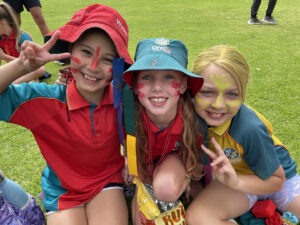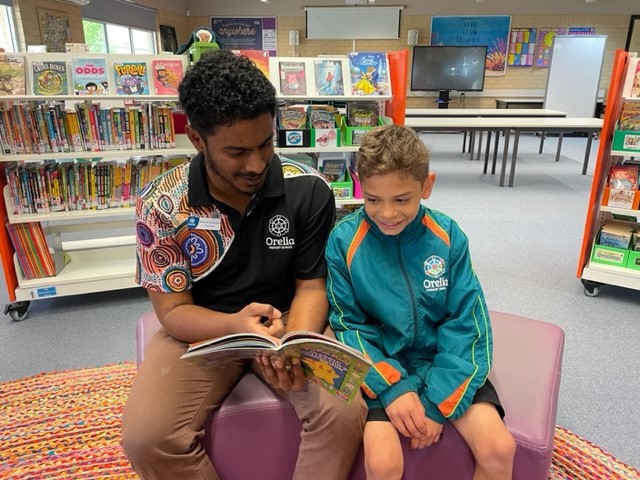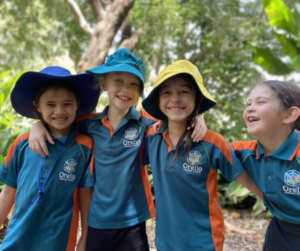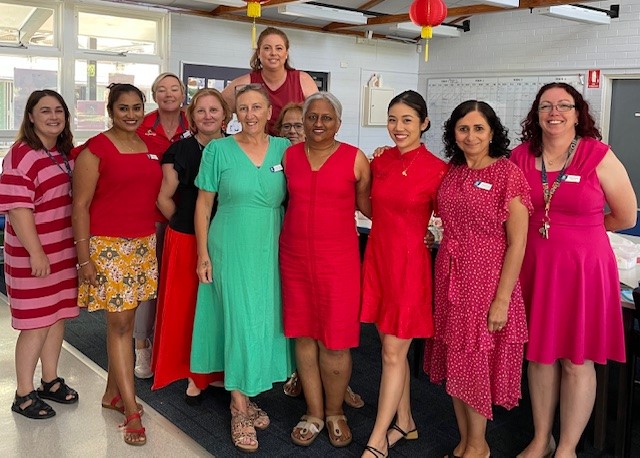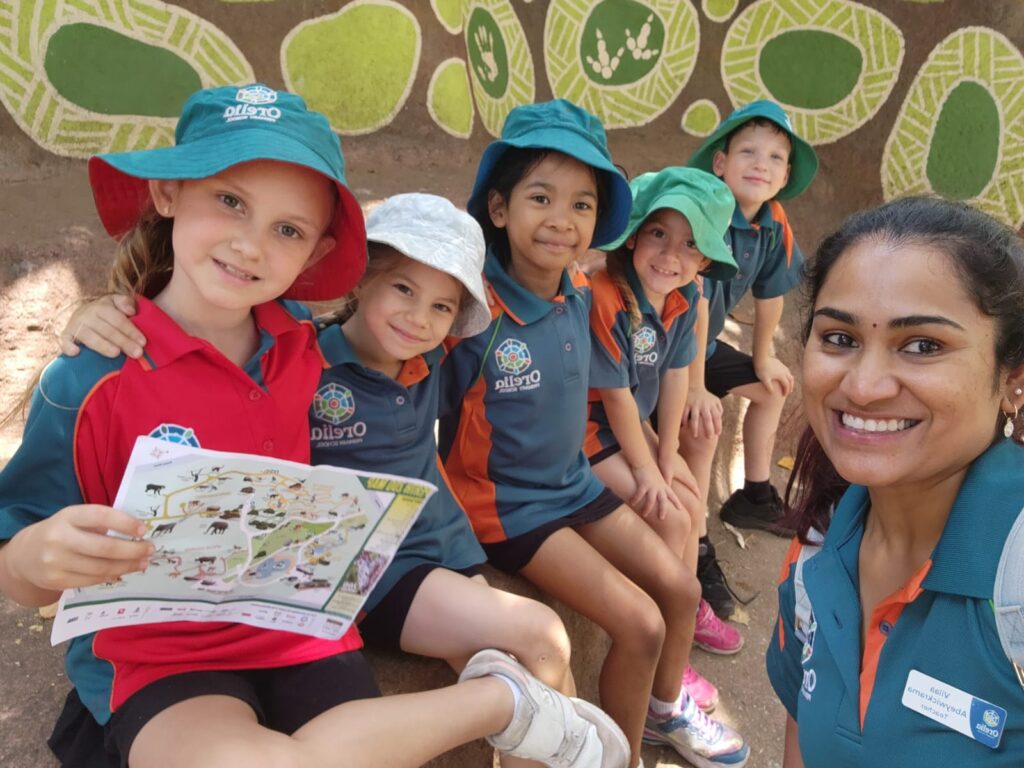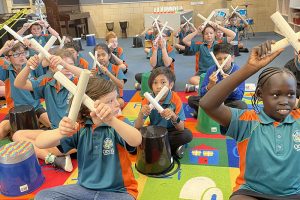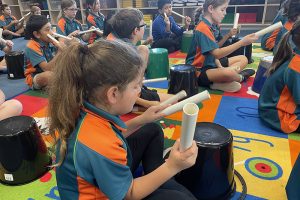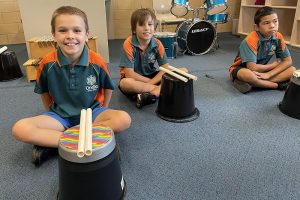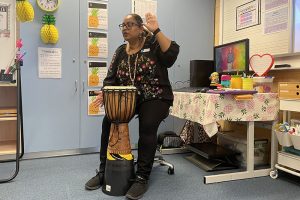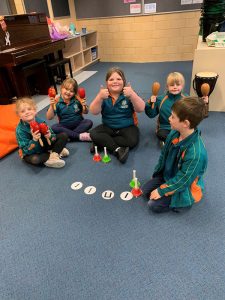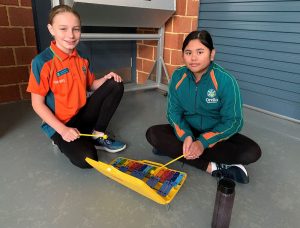Search Results for:
Kindergarten
Kindergarten is an important milestone in the life of your child and your family. At Orelia Primary School, we aim to build strong partnerships with families as we embark on laying a strong foundation for your child’s ongoing educational journey.
Our Kindergarten’s programme is fun, engaging and delivered through play experiences. We use The Early Years Learning Framework to deliver a quality teaching and learning programme through focused planning to suit the needs of our children.
The Early Years Framework (EYLF) describes childhood as a time of belonging, being and becoming. 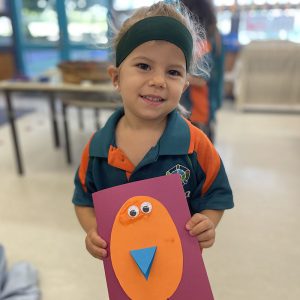
Belonging- Acknowledging children’s interdependence with others and the basis of relationships in defining identities. Belonging shapes who children are and who they become.
Being- Recognising the here and now in children’s lives. The early childhood years are not solely preparation for the future but also about the present.
Becoming- Reflects the process of change in children’s identities, knowledge, understandings, capabilities, skills and relationships.
The EYLF has a specific emphasis on play-based learning and recognises the importance of communication and language and social and emotional development.
Purposeful play is a powerful medium for learning and helps children make sense of their world. Play is an important part of your child’s first years of life. At Orelia Primary School Kindergarten children choose from a wide variety of activities, materials and equipment that will stimulate, challenge, and involve them in interesting tasks. The modelling and explicit teaching of social skills will help develop the children’s self-awareness and self-control.
We have a strong oral language focus in our Kindergarten. This is important because we know that children need to be able to communicate and organise their thoughts to speak before we can expect them to do the same as through writing and reading. Through books, dramatic play, and sharing of many experiences we immerse your child in a world full of language experiences.
Kindergarten school hours
Our doors open at 8.30 am and teaching commences at 8.40 until 2.45. We have two groups, Kindergarten A (Monday, alternating Wednesdays and Thursday and Kindergarten B (Tuesday alternating Wednesday and Friday).
Bringing and picking up your child
Making sure your child is happy and safe is our priority. For this reason, parents, or a responsible person, are to bring their child to the Centre each day and be available to collect them at the end of the day. If you wish your child to be collected by a person other than their guardian, please advise the teacher. Written permission is required if an older sibling is collecting your child.
Healthy food and drink
In the interest of your child’s dental and physical health no lollies, sweet biscuits or chocolate are allowed in the centre. Children will have a healthy snack at fruit time – this is an important part of our social development teaching.
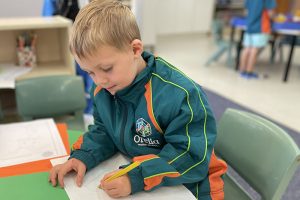
- Fruit – apples, oranges, bananas, pears, watermelon, etc.
- Dried fruit• Vegetables/Salads – carrot, celery, tomato, cucumber
- Hard boiled eggs, cold meats
- Cheese, savoury biscuits but not sweet biscuits
A drink of water will follow fruit. When packing lunch please ensure food is prepared and packed in a manner that is easy for your child to access. When packing your child’s drink we strongly recommend water. Please notify staff if your child has any food allergies or is not to eat, as we do cooking activities occasionally.
This is a great site for advice in all areas of parenting and helping your child prepare for school
https://raisingchildren.net.au/preschoolers
The Department of Education WA ‘Learning Begins at Home’ video is for parents and carers of children up to four years of age, the video focuses on how parents can support their child’s development and learning in the early years.
Parent involvement
You are welcome and encouraged to join us and help at the Kindergarten. There are also a number of other ways you can get involved:
- Put your name on the parent help roster.
• Attend parent workshops; attend the school P&C committee meetings
• Volunteering to wash aprons and hand towels
• Share any special skills or interests with the class.
• Save your ice cream, yoghurt and margarine containers for us. Paper, cardboard, milk and orange juice cartons, tissues boxes, plastic bottles, milk bottle tops, old magazines, cereal boxes are all welcome. Please do not send toilet roll inserts.
Bags and equipment
Your child will need a reasonable sized bag or backpack, sufficient to fit a lunch box, drink container, morning snack, books,
hat, spare clothes and schoolwork. This style of bag will help us teach your child about keeping belongings in one place and being responsible for their own property. A library bag to allow children to borrow books. This bag should be approximately 35cm x 35cm and have a Velcro fastening or drawstring handle to stop books falling out.
They will also need:
• A drink bottle
• A full set of spare clothing in their bag every day including underwear, shirt, shorts or trousers and a jacket or jumper in case of accidents and when children are involved in water play
Your child may wish to take their shoes off when they are playing in the sandpit and outdoors. Please ensure that they have shoes that they can put on independently, such as slip on shoes or shoes with Velcro fasteners.
Please write your child’s name on everything so that it is visible.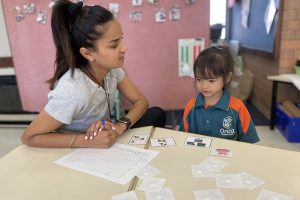
Non-Teaching
Angela Baggio – Gardner
Tracy Rowe – Head Cleaner
Joenalyn Gomez – Cleaner
Samantha Long – Cleaner
Student Services
At Orelia Primary School, we want all our students, staff and school community members to feel they belong and are welcome.
A school psychologist assists students with their educational, emotional and social needs. The psychologist plays an important role in providing advice to teachers and parents about programs and strategies to support students.
The School chaplain is involved with local community services programs. The Chaplain’s role offers support for students, parents and staff in times of need as well as one-to-one counselling and care for students with personal issues. The Chaplain also provides workshops for groups of students, helping them with communication skills, friendship building, self-esteem and development values.
Our Aboriginal and Islander education officer (AIEO) assists and supports Aboriginal students. The AIEO liaises between communities and schools and assists teachers in encouraging supportive and inclusive environments.
The Department of Education is committed to providing a quality education for all students in a safe, inclusive and caring learning environment. The Department of Education has more information on student health and wellbeing
Kristy Mippy – AIEO
Roy Moosa – School Psychologist
Jerome Dueman – School Chaplain
Educational Assistants
Colleen Lynch
Catrina Russell
Julie Jolley
Charlotte Glasson
Ashlea Tester
May Abayneh
Teaching
Administration Team
Joanne Stewart-Magee – Principal
Ashley Sims – Deputy Principal
Joanne Tester – Deputy Principal
Jane Littlewood – Manager Corporate Services
Cathy Harris – School Officer
Julie Gliddon – Library/Marketing Officer
Kristy Mippy – Aboriginal Islander Education Officer (AIEO)
Early Childhood
Music
Students in Room 12 enjoyed playing different percussion instruments to a graphic score of Tchaikovsky’s ‘Russian Dance’ from the ballet titled ‘The Nutcracker’. Some students were chosen to be a conductor to lead the class in a mini orchestra.
Music is a very important part of the school program, it is one of the few activities that activates, stimulates and uses the entire brain and it can also enhance self-esteem.
All primary classes year 1 to 6 participate in music lessons. The early childhood teachers also incorporate music into their daily program with songs, dance and nursery rhymes.
During music lessons students sing, dance and play instruments such as bucket drums, glockenspiels, boom whackers, bells, tuned and un-tuned percussion instruments. At Orelia Primary School the program has been designed to explore and develop many aspects of music including basic theory, with an emphasis on playing and creating. Both Kodaly and Orff strategies are used to engage and inform the students of musical theory concepts using the Music Room Program.
The belief is that all students can learn to sing and play an instrument and that music is to be enjoyed while enhancing and expressing creativity.

